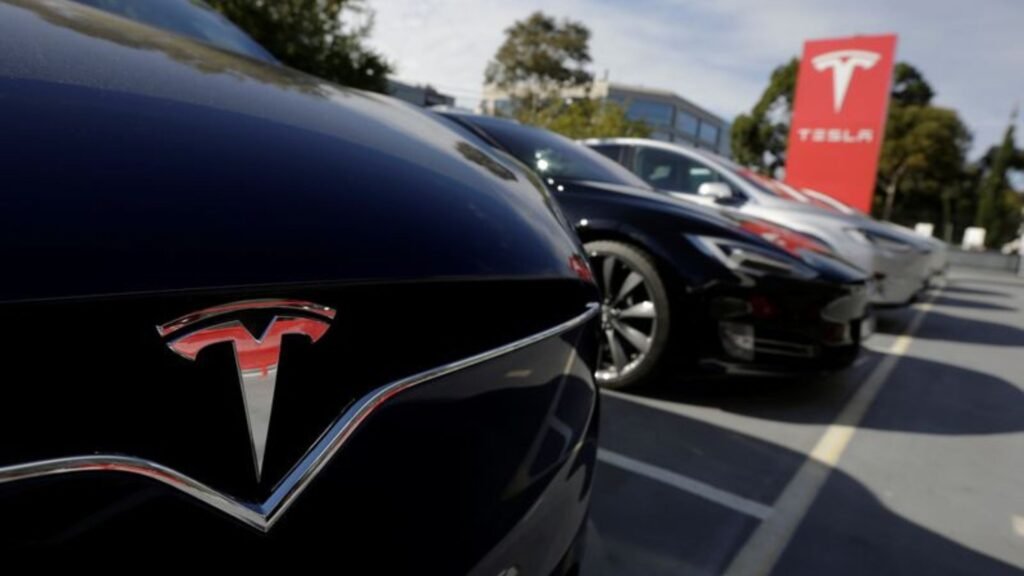Recently, Tesla, a well-known electric vehicle manufacturer, grabbed headlines with its decision to withdraw from the Australian auto lobby. This move, announced on Thursday, involved Tesla resigning from the major auto lobby and stepping down from its board. The company cited a dispute over the government’s proposed fuel efficiency standards and their potential impact on car prices as the primary reason for this significant decision.
This disagreement, centered around car emission standards, has ignited widespread discussions within both the automotive industry and environmental circles. The departure of the company from the auto lobby has brought into focus the critical importance of sustainable transportation practices, further emphasizing the need for stricter emission standards to address environmental concerns.
The Role of the Australian Auto Lobby
The Australian auto lobby, represented by the Federal Chamber of Automotive Industries (FCAI), has a significant influence on automotive policies and regulations. The FCAI represents the interests of various stakeholders, including car manufacturers.
Tesla, on the other hand, has expressed concern about the FCAI’s actions, which it believes are inappropriate. The US electric vehicle market leader stated that the FCAI should not forecast or coordinate how competitor brands will adjust prices in response to environmental regulations.
As a result, the company has requested that the Australian Competition and Consumer Commission investigate the FCAI’s comments. Despite these developments, the FCAI, which includes senior executives from major automakers, has yet to respond to requests for comment. In response to the situation, Tesla has announced that it will discontinue its membership with the FCAI by June.
Tesla’s Commitment to Sustainability
Tesla is well-known for its commitment to sustainable transportation solutions, particularly zero-emission vehicles. The company has been at the forefront of innovation in the electric vehicle market, emphasizing the significance of lowering carbon emissions.
Australia’s Transition Towards Fuel Efficiency Standards
Only recently, Australia was the only developed country, other than Russia, with established and evolving fuel efficiency standards. However, the current center-left Labor government, which took power in 2022, has announced plans to close the gap by implementing a fuel efficiency model. This model aims to reduce the average carbon emissions of new vehicles sold in the coming year.
The implementation of such standards may incentivize manufacturers to ship more electric vehicles (EVs) to Australia, increasing adoption rates. This move brings the country in line with the standards that the majority of developed economies follow.
The Federal Chamber of Automotive Industries (FCAI) addressed concerns on Wednesday, emphasizing the government’s decision to impose a fuel efficiency standard with stringent targets and penalties beginning January 1, 2025.
The FCAI expressed concern about the sudden imposition of these standards, anticipating significant disruptions across various sectors of the automotive industry. Furthermore, the FCAI warned that such measures could limit consumer choice and raise vehicle prices. The government, having completed consultations on its preferred model, intends to introduce corresponding legislation later this year.
The reason behind this split
- False Claims and Clean Car Policy:
Tesla expressed deep concern about the FCAI’s public statements. The lobbying group claimed that the government’s proposed vehicle efficiency standard would significantly increase the prices of popular cars and utes (utility vehicles), while simultaneously lowering the prices of Tesla models.
However, Tesla discovered that these claims were demonstrably false. The company accused the FCAI of favoring car manufacturers who wanted to delay action on the climate crisis over members who agreed with Labor’s position on emissions reduction.
- FCAI’s Position and Ambitious Policy Design:
The Australian arm of Tesla stated that the FCAI advocated for an ambitious policy design, despite knowing that this design would not effectively reduce vehicle emissions before 2030. Furthermore, it has the potential to significantly increase CO₂ emissions.
The lobby group also made media statements, implying that the government’s policy could raise the price of popular utes by up to $13,000 next year. However, Tesla claimed that the FCAI understood that this was not how the system worked.
- Consumer Protection:
In response to the FCAI’s actions, Tesla took decisive action: it asked the Australian Competition and Consumer Commission (ACCC) to look into the lobby group’s claims that were likely to deceive Australian customers.
Tesla announced that it will no longer be a member of the FCAI after the fiscal year 2023–24. Thom Drew, Tesla’s company director, was a member of the FCAI board until recently.
Dispute Over Emission Standards

The Australian auto lobby’s reluctance to embrace stricter car emission regulations is at the heart of Tesla’s dispute with them. Tesla continues to advocate for more stringent standards to address climate change, in line with its commitment to sustainable energy solutions.
The issue of car emissions is critical, as they contribute significantly to greenhouse gas emissions, which exacerbate climate change. As nations around the world prioritize environmental conservation efforts, the need for stricter emission standards grows.
Tesla’s Decision and Its Implications

Having withdrawn from the auto lobby, Tesla now has the freedom to advocate for stricter emission standards. This significant decision demonstrates Tesla’s unwavering commitment to advancing sustainable transportation solutions.
Furthermore, Tesla’s departure serves as a stark reminder to the automotive industry of the critical need to adopt sustainable practices. It sends a strong message of urgency, encouraging other automakers to prioritize environmental sustainability in their operations and decisions.
Future Perspectives
Tesla’s withdrawal from the Australian auto lobby raises questions about the lobby’s future trajectory. This move could put other automakers under increased scrutiny and pressure to meet more ambitious emission standards, reshaping the automotive industry landscape.
As the global trend toward greener transportation solutions shifts, governments, industries, and consumers face a shared responsibility to prioritize sustainability. Tesla’s decision serves as a poignant reminder of the inevitable transition to electric and emission-free vehicles, emphasizing the importance of adopting sustainable practices.
Tesla’s decision to withdraw from the Australian auto lobby demonstrates its commitment to sustainable practices and environmental conservation. Tesla is setting an example for the automotive industry by taking a principled stance on emission standards and encouraging stakeholders to prioritize sustainability in their operations.
